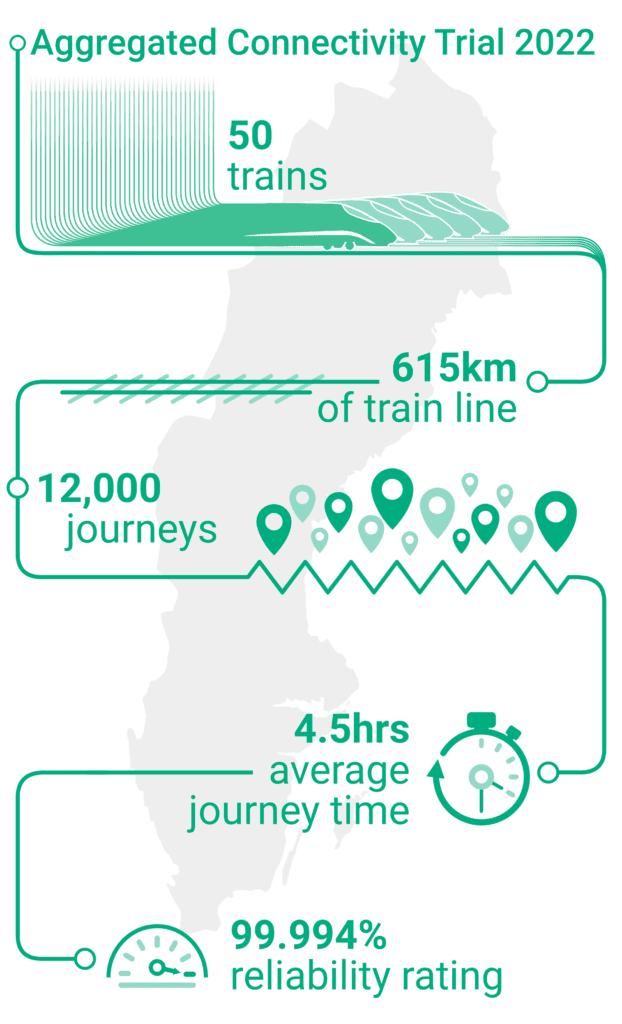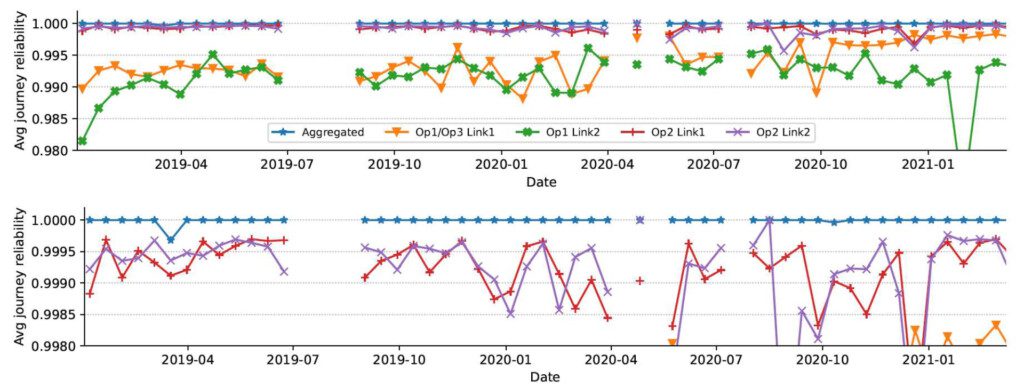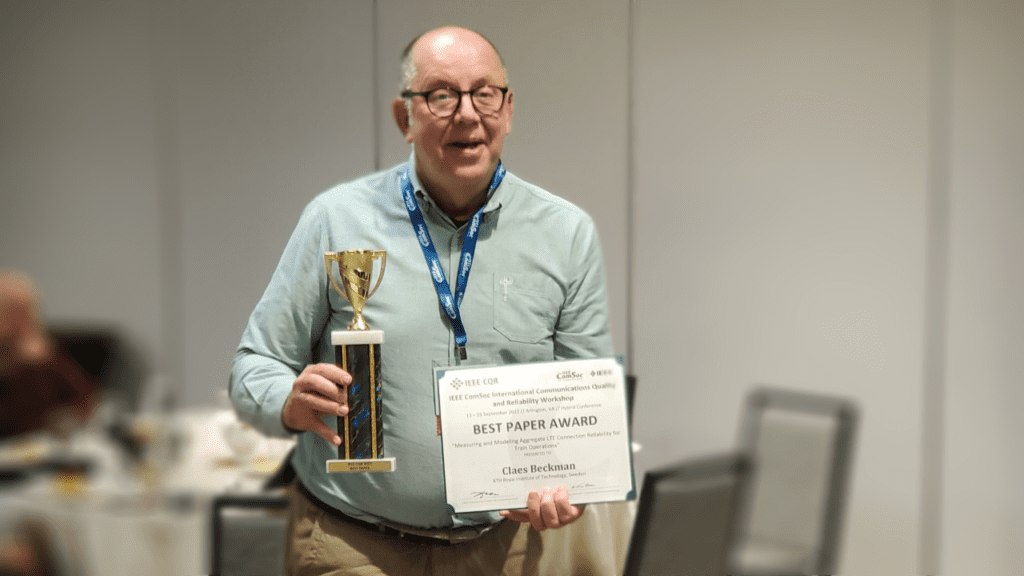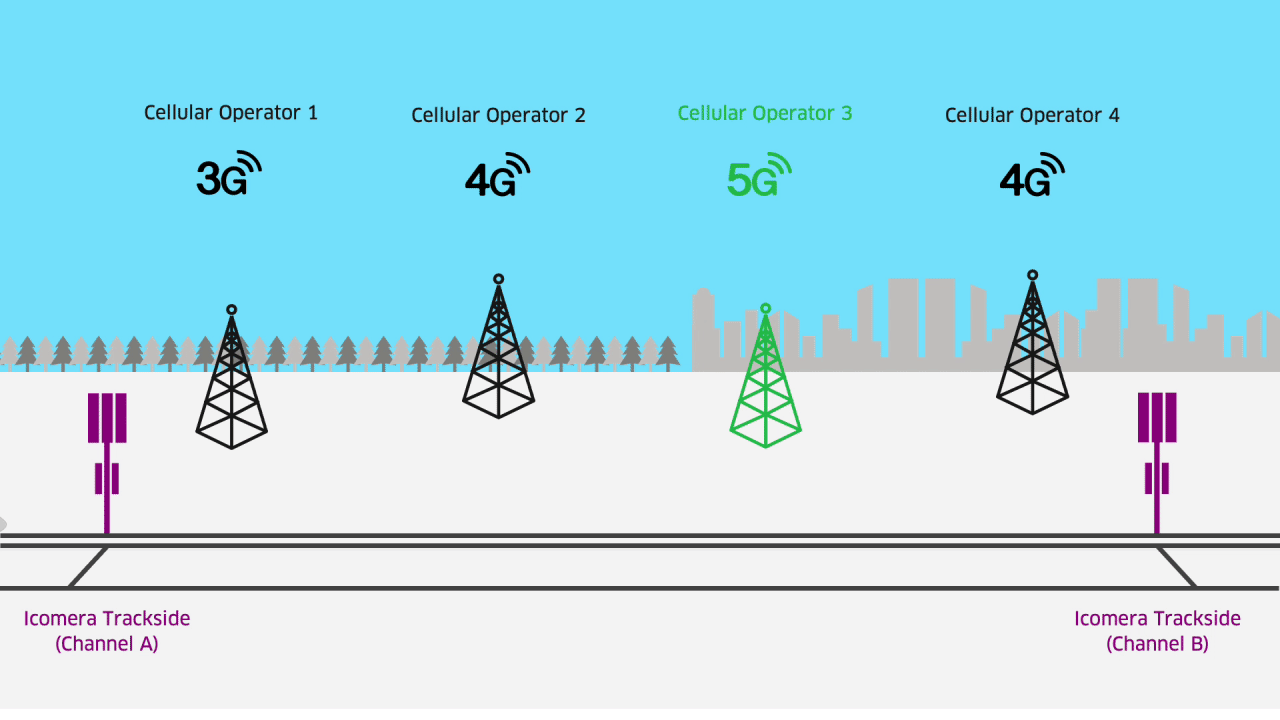‘Measuring and Modeling Aggregate LTE Connection Reliability for Train Operators’, a research paper by a team from Icomera and Karlstad University, has been named ‘Best Paper’ at the IEEE CQR conference.
IEEE, a renowned professional association for electronic and electrical engineering, held its 36th International Workshop on Communications Quality and Reliability (CQR) in Arlington, Virginia, USA in 2022, featuring numerous technical sessions, original paper presentations, and keynote sessions. The 2022 session specifically examined 5G networks and their use in providing improved quality and reliability in communications, as well as means of overcoming barriers that may prevent the population at large from having access to communications resources.
The winning paper, authored by Icomera team members Prof. Claes Beckman and Rikard Reinhagen, with Prof. Anna Brunstrom and Johan Garcia of Karlstad University, examines the dependability of currently proposed methods of using LTE cellular infrastructure for supporting train signalling systems (ERTMS and FRMCS, specifically) and demonstrates the improved reliability of using multiple commercial networks simultaneously for such applications.

To prove that aggregated connectivity does indeed provide highly stable support for public transport signalling applications, tests were conducted on 50 train sets travelling on 615km of train line between Malmö and Stockholm, from 2019 to 2021.
Over the course of more than 12,000 journeys averaging 4.5 hours in length, Icomera’s proprietary core technology, SureWAN™, combined four simultaneous data links connecting two or three cellular operators to each train, offering a connection reliability rating of 99.994% – marking a significant improvement compared to using a single link to the best-performing network operator.

By retaining multiple concurrent data links, SureWAN™ accomplishes maximum data capacity, coverage, availability, and redundancy, and minimises data packet delay or loss when compared to methods that switch between individual networks along the route. SureWAN™ delivers higher throughput than would otherwise be available from a single network by supporting 4G, 5G, trackside, and satellite networks as part of a single solution.
The use of existing public networks is also a far more cost-effective solution than building new ones mainly for the purposes of train signalling. For example, the European Rail Traffic Management System (ERTMS), which the EU is implementing to provide a safe, modern integrated railway network with consistent technologies across borders, is also Europe’s most expensive communications infrastructure project ever. With the additional rollout of 5G networks across Europe, ERTMS is planned to be replaced by a newer model, the Future Railway Mobile Communication System (FRMCS) from 2029, with an estimated cost of between €73 and €177 Billion to implement both systems.
It should also be noted that while ERTMS and FRMCS enable some additional applications such as Automatic Train Operations, Train Control and Monitoring Systems, and video monitoring, they offer no improvements to the passenger experience, such as real-time information, entertainment, or onboard Wi-Fi connectivity – a particularly salient consideration given the mass shift to more flexible working patterns and a decline in passenger transport usage levels post-covid. By contrast, Icomera’s connectivity solution can be used to enable a complete ecosystem of networked digital applications offering improvements to the passenger experience, while also providing a more reliable and cost-efficient backbone for signalling and video surveillance applications.

Prof. Claes Beckman – one of the Icomera team members who wrote the winning paper – presented the results of the trial to CQR delegates and described how using the right technologies to leverage existing commercial infrastructure provides a more reliable system while reducing the need for dedicated infrastructure and hardware. This enables authorities at every level to reduce the overall costs for society while offering numerous other benefits to transport operators and passengers alike.


